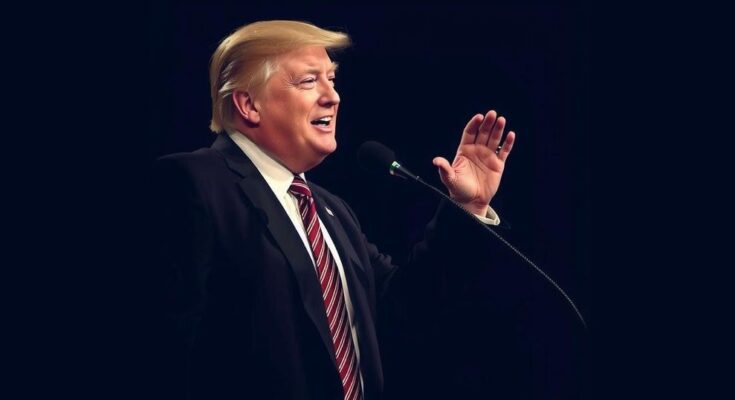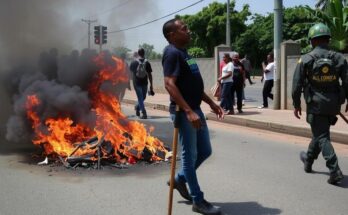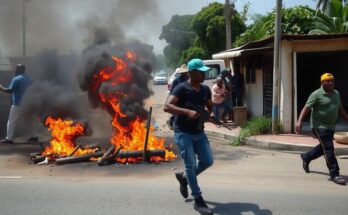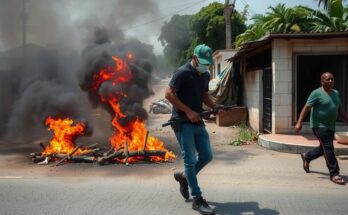Donald Trump’s New York rally faced backlash due to derogatory remarks about Puerto Rico made by comedian Tony Hinchcliffe. Kamala Harris is campaigning in crucial battleground states like Michigan, emphasizing economic support for Hispanic voters. The controversy has drawn criticism across political lines, highlighting the influence of Puerto Rican voters in the ongoing election.
Former President Donald Trump concluded a rally in New York City, amidst considerable criticism due to incendiary remarks directed at Hispanic voters, particularly concerning Puerto Rico. The rally included a controversial joke by comedian Tony Hinchcliffe, referring to Puerto Rico derogatorily, igniting backlash from various political figures and celebrities. Meanwhile, Democratic candidate Vice President Kamala Harris is focusing her campaign in essential battleground states, including Michigan and Georgia, as the final days of the election campaign unfold. Trump will travel to Atlanta, Georgia, where he is set to address a gathering aimed at faith leaders while also rallying his supporters in this pivotal state. The political climate is tense, particularly in Georgia, where Trump previously questioned the legitimacy of the 2020 election results, a situation that has led to ongoing legal challenges against him. On the other hand, Vice President Harris is concentrating her efforts on appealing to college voters in Michigan, aiming to highlight her support for economic growth and job creation in contrast to Trump’s economic policies. The fallout from Hinchcliffe’s remarks has been significant, drawing condemnation from Harris, members of Congress, and prominent Puerto Rican figures such as singer Ricky Martin and Bad Bunny, both of whom have pointed out the insensitivity of such comments. Harris emphasized that “Puerto Ricans deserve a president who sees and invests in (their) strength,” following the derogatory remarks. Additionally, Republican officials have distanced themselves from Hinchcliffe’s comments, reinforcing their disagreement with the sentiments expressed. This controversy underscores the importance of Puerto Rican voters, whose influence could be vital in swing states during this closely contested election. In conclusion, the political landscape leading up to the election remains charged, with both parties vying for the crucial votes of Hispanic communities, whose engagement in the electoral process is more significant than ever. The events at Trump’s rally and Harris’s strategic campaigning demonstrate the high stakes as the election draws near.
The context of the article revolves around the current political environment as the United States approaches its presidential election. Notably, Donald Trump and Kamala Harris are the primary candidates vying for the presidency, with their campaigns targeting vital swing states that could determine the election outcome. Trump’s rally in New York City, marked by inflammatory remarks regarding minorities, notably Puerto Ricans, reflects broader challenges regarding demographic engagement in the electoral process. Kamala Harris’s responses and outreach efforts illustrate the significance of the Hispanic electorate, particularly Puerto Ricans, in key states like Michigan and Pennsylvania, where their voting participation can substantially influence the election results. The political narrative is further complicated by Trump’s ongoing legal issues and the polarized socio-political landscape.
In summary, the recent rally by Donald Trump has resulted in notable backlash due to derogatory comments aimed at the Puerto Rican community, spotlighting the ongoing sensitivity surrounding race and ethnicity in American politics. Vice President Kamala Harris’s focused efforts in battleground states underscore the Democratic campaign’s proactive stance in addressing these issues. As both candidates pursue vital voter demographics, the implications of their remarks and outreach strategies will play a crucial role in shaping the outcome of the impending election.
Original Source: www.dw.com




